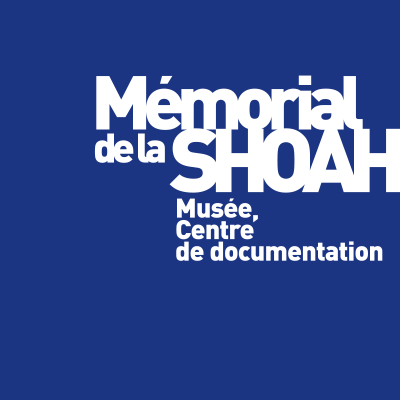At the epicenter of the destruction of the Jews of Europe: Sonderkommando, Arbeitseks, "Death Brigades" International Colloquium
Sunday, May 18, 2025 Monday, May 19, 2025
During the "Final Solution", groups of Jews temporarily spared are plunged closer to the process of destruction. These men are forced by the Nazis to carry out a number of additional operations in the killing centers, before or after the assassination: reception of deportees on the site, collection of their goods, extraction of bodies from gas chambers, burial or cremation of bodies.
The most well-known of these groups is the Auschwitz-Birkenau Sonderkommando.
Due to the particularity of the site, both concentration camp and killing center, the distribution of operations was actually based on different Kommandos (ramp, Kanada) in addition to the one assigned to the gas chambers, the Sonderkommando, which, since 1945, has become the Kommando most directly attached to the process of destruction.
Elsewhere, as in Janowska, Chelmno, Treblinka, Sobibor or even Belzec, other organizations and modes of operation have prevailed for these groups described as 'death brigades' or even Arbeitskansas.
The objective of this international conference is to take stock of our knowledge of the plural history of these groups, which remains largely unknown despite the place held by the Sonderkommando of Auschwitz-Birkenau in representations.
Discover the program
Participate in the conference
In the presence of Igor Bartosik (Auschwitz Museum), Tal Bruttmann (Cergy Paris University), Thomas Chopard (EHESS), Piotr Cywiński (Auschwitz-Birkenau Museum), Michael Fleming (Institute of European Culture, Polish University Abroad, London), Samuel D. Kassow (Trinity College, Hartford, USA), Peter Klein (Touro University New York, Campus Berlin), Christoph Kreutzmüller (Freie Universität Berlin), d'Ophir Lévy (université Paris 8), de Wojciech Płosa (Auschwitz-Birkenau Museum), Piotr Setkiewicz (Auschwitz-Birkenau Museum), Karolina Szymaniak (Sorbonne University, Poland), Karen Taieb (Mémorial de la Shoah), Robert Jan van Pelt (University of Waterloo, Canada), Nikolaus Wachsmann (Birkbeck College, university of London & Stepping Group Berlin), from AnnetteWieviorka (CNRS), from Dominic Williams (Northumbria University New Castle)...
In partnership with the Auschwitz-Birkenau Museum and the Institut historique allemand (Paris)
Scientific coordination: Tal Bruttmann, historian, and Julie Maeck, historian, responsible for the programming of the auditorium at the Shoah Memorial.
Logistics coordination: Céleste Espinasse, intern at the Shoah Memorial auditorium.
English and French languages.
Simultaneous translation.
